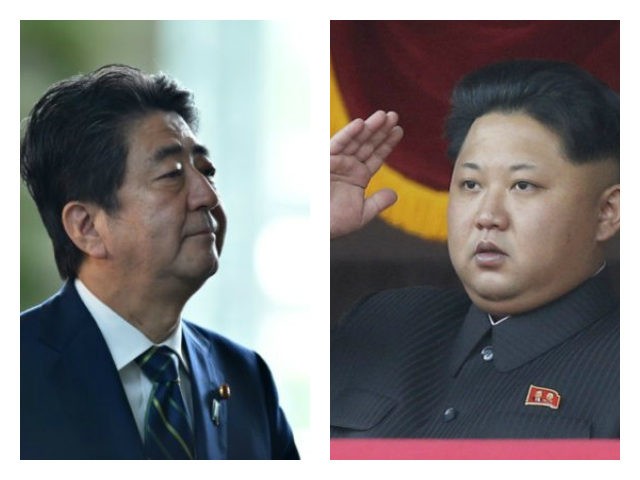Prime Minister Shinzo Abe said at a press conference on Thursday that Japan’s security environment is “at its severest since World War II” because of North Korea, and he vowed to “protect the people’s lives and peaceful living in any situation.”
“It is absolutely unacceptable that North Korea is trampling the strong desire of Japan and the rest of the international community for peaceful resolutions and continuing with its provocative behavior,” Abe said.
He also declared that a nuclear-armed North Korea is “absolutely unacceptable.”
“Without giving in to any provocative action, we must change the North Korea’s policy by maximizing the pressure in complete solidarity with the international community,” he stressed.
The prime minister restated his long-held desire to modify Japan’s Constitution to allow for a more powerful military that would have more freedom to act in Japan’s defense and said he wanted 2018 to be a year “in which public debate over a constitutional revision will be deepened further.”
Although he did not go into specifics about how Japan would spend its increased military budget in the coming year, Nikkei Asian Review quotes him saying he would “strive to strengthen our defenses, not just as an extension of existing [practices], but in the way that is truly necessary to protect the citizens.” This would suggest a significant change in Japanese defense doctrine, not just buying a few more ships and planes to shore up its existing strategy.
Nikkei Asian Review states that Abe’s LDP Party plans to present its ideas for constitutional amendments pertaining to the Japanese military sometime in the next six months.
Abe’s strong stance against North Korea’s nuclear program will doubtless be appreciated by the U.S. government at a moment when some suspect North Korea is either resorting to its old delaying tactics or seeking to splinter the international coalition lined up against it by opening talks with South Korea during the 2018 Winter Olympics.
CNBC worries that South Korea and Japan are drifting apart over the issue of World War II’s “comfort women” at the moment absolute solidarity against North Korea is most needed.
The issue revolves around compensation for the families of Korean women forced to work in Japanese military brothels during the war. An $8.8 million deal was reached two years ago, but the South Korean government recently declared it was inadequate, prompting Japanese Foreign Minister Taro Kono to reply that altering the deal “would make Japan’s ties with South Korea unmanageable.”
“We will see a fracture develop in terms of U.S.-South Korea-Japanese cooperation in dealing with the North,” Stephen Nagy of the International Christian University in Tokyo told CNBC. “Pressing Tokyo on the comfort women issue while attempting to engage Pyongyang has the risks of alienating Tokyo from Seoul.”
At least for the moment, Abe is signaling that Japan still regards the North Korean menace as a top priority and remains resolute against Pyongyang’s nuclear missile program. However, CNBC offers some speculation that South Korea might drift into China’s orbit if the split with Japan becomes more serious, or that China might fear Japan moving closer to the United States as South Korea pushes it away, bringing more American influence into the region than China wants to deal with.
This could all be shaped into a compelling argument that Beijing is losing more than it gains by allowing North Korea’s quest for nuclear missiles to continue, especially if one of the results is a stronger, more aggressive Japanese military backed up by a more powerful U.S. military presence in the region for years to come. Chinese planners tend to take such arguments seriously.

COMMENTS
Please let us know if you're having issues with commenting.